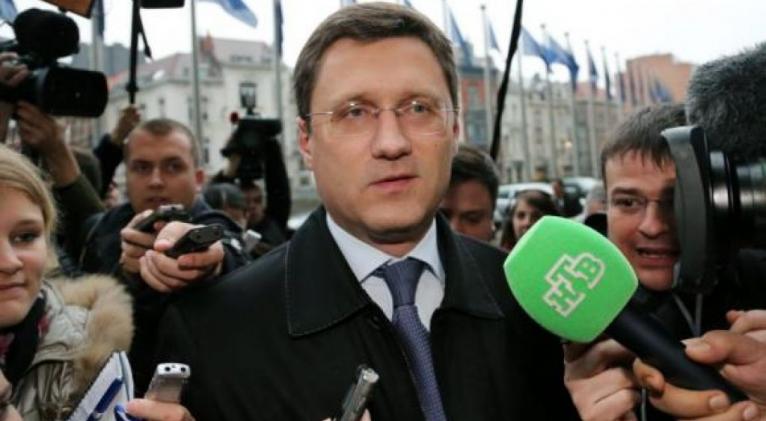Ukraine, Russia try again to forge gas deal at Brussels talks
especiales

Russian state utility Gazprom (GAZP.MM) halted supplies to Kiev in June because of Ukraine's unpaid gas bill, which Moscow says is around $4.5 billion.
For months, the cut-off has had little impact. But pressure is mounting for a deal as peak winter demand looms and European Energy Commissioner Guenther Oettinger, who has been mediating the talks, prepares to leave office at the end of the week.
The two sides came close in September, but then differences gaped wide last week over Kiev's ability to pay.
Oettinger told German television on Wednesday there was a 50 percent chance of a breakthrough in the talks, which begin in the afternoon in Brussels. If he cannot broker a solution, it will be down to his successor, who takes office on Nov. 1.
Weekend elections returned a pro-Western parliament in Kiev, potentially stoking tensions with Moscow, although Russia's EU envoy, Vladimir Chizhov, said the mood could be more relaxed now the vote has taken place.
"During the last rounds of talks, let's not conceal it, the pre-election situation had its influence on Ukrainian side," Chizhov told Russian agency RIA Novosti. The only unresolved problem, he said, was where to get the money from for winter supplies.
NOT JUST ABOUT THE MONEY
Ukraine's Naftogaz has set aside $3.1 billion in a special escrow account to pay off a chunk of its debt to Gazprom, but Russia is also demanding prepayment for winter supplies before it is willing to turn the taps back on. Kiev says it is working to raise more money from all possible sources of financing, including the European Union. The executive European Commission is considering Ukraine's request last week for a further loan of 2 billion euros.
But Kiev also says money alone may not be enough.
"I have an impression that the Russian side doesn't want to agree," Ukrainian Finance Minister Oleksander Shlapak told reporters in Kiev on Tuesday.
Analysts also said it could be very hard to come up with enough assurances to satisfy Russia. Ukraine at the same time is pushing for written guarantees that any agreement on price will be lasting.
For all sides, there is much at stake.
Russia provides around one third of the European Union's gas, roughly half of which is shipped via Ukraine.
Ukraine in turn relies on Russia for around 50 percent of its own gas and despite storage has a winter shortfall of around 3 billion to 4 billion cubic meters (bcm), depending on the weather.
For Russia, the gas sector contributes approximately a fifth of the national budget.
Economic sanctions on Russia, which EU officials at a closed-door meeting on Tuesday decided to leave unchanged for now, are sapping an already weak economy. But Moscow could well be willing to endure much more hardship for political ends.
"Economic factors are generally not given precedence when national security concerns are at stake," Pasquale De Micco, a national expert from the European Parliament's policy department, said in a research paper on Europe's gas supply options.
"What is certain is that a gas war risks harming both parties in the short term and that it would hamper future efforts to re-establish mutually trusting relations."
(Additional reporting by Vladimir Soldatkin and Ekaterina Golubkova in Moscow, Natalia Zinets and Pavel Polityk in Kiev and; Michael Nienaber in Berlin; editing by Jane Baird)













Add new comment